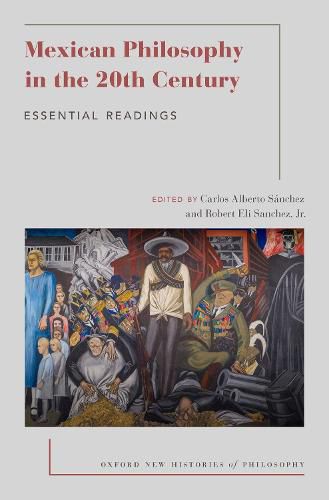Readings Newsletter
Become a Readings Member to make your shopping experience even easier.
Sign in or sign up for free!
You’re not far away from qualifying for FREE standard shipping within Australia
You’ve qualified for FREE standard shipping within Australia
The cart is loading…






Sanchez and Sanchez have selected, edited, translated, and introduced some of the most influential texts in Mexican philosophy, which constitute a unique and robust tradition that will challenge and complicate traditional conceptions of philosophy. The texts collected here are organized chronologically and represent a period of Mexican thought and culture that emerged from the Mexican Revolution of 1910 and which culminated in la filosofia de lo mexicano (the philosophy of Mexicanness). Though the selections reflect on a variety of philosophical questions, collectively they represent a growing tendency to take seriously the question of Mexican national identity as a philosophical question–especially given the complexities of Mexico’s indigenous and European ancestries, a history of colonialism, and a growing dependency on foreign money and culture. More than an attempt to describe the national character, however, the texts gathered here represent an optimistic period in Mexican philosophy that aimed to affirm Mexican culture and philosophy as a valuable, if not urgent, contribution to universal culture.
$9.00 standard shipping within Australia
FREE standard shipping within Australia for orders over $100.00
Express & International shipping calculated at checkout
Sanchez and Sanchez have selected, edited, translated, and introduced some of the most influential texts in Mexican philosophy, which constitute a unique and robust tradition that will challenge and complicate traditional conceptions of philosophy. The texts collected here are organized chronologically and represent a period of Mexican thought and culture that emerged from the Mexican Revolution of 1910 and which culminated in la filosofia de lo mexicano (the philosophy of Mexicanness). Though the selections reflect on a variety of philosophical questions, collectively they represent a growing tendency to take seriously the question of Mexican national identity as a philosophical question–especially given the complexities of Mexico’s indigenous and European ancestries, a history of colonialism, and a growing dependency on foreign money and culture. More than an attempt to describe the national character, however, the texts gathered here represent an optimistic period in Mexican philosophy that aimed to affirm Mexican culture and philosophy as a valuable, if not urgent, contribution to universal culture.